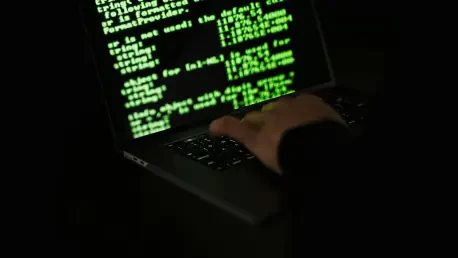In a striking case of corporate misconduct, a telecommunications company based in Dania Beach, Florida, has been implicated in a massive fraudulent scheme targeting a federal program designed to support low-income Americans, known as the Lifeline Program. Managed by the Federal Communications Commission (FCC), this initiative allocates nearly $2 billion annually to ensure affordable phone services for those in need. However, allegations of deceit and manipulation have surfaced against Q Link Wireless LLC and its owner, Issa Asad, leading to a staggering $110 million settlement to resolve both criminal and civil charges. This case not only highlights the vulnerability of public assistance programs to exploitation but also raises critical questions about oversight and accountability in the telecommunications sector. The details of this fraud reveal a calculated effort to undermine the very system meant to aid the disadvantaged, sparking concern among regulators and the public alike.
Unraveling the Fraudulent Scheme
Manipulating Lifeline Program Rules
Between February 2018 and October 2019, Q Link Wireless, under the direction of Issa Asad, allegedly engaged in a deliberate scheme to defraud the Lifeline Program by submitting false claims for federal payments. The program mandates that eligible telecommunications carriers (ETCs) provide discounted services to low-income consumers, who must use their Lifeline phones at least once every 30 days to maintain eligibility. Despite clear regulations requiring the de-enrollment of inactive users, the company is accused of knowingly claiming reimbursements for customers who failed to meet usage requirements. Some of these claims even involved devices that were not activated or were in the FCC’s possession at the time. This blatant disregard for compliance enabled Q Link to improperly secure approximately $38 million in payments, funds that were meant to support vulnerable populations. The scale of this misconduct underscores a troubling prioritization of profit over ethical responsibility within the framework of a critical public assistance initiative.
Fabricating Usage Records
Beyond submitting fraudulent claims, Q Link Wireless and Asad are accused of taking deceptive measures to conceal their actions from federal oversight. During the period of alleged fraud, the company reportedly manipulated internal records to create the appearance of phone usage for inactive accounts. This included fabricating activity data for devices that were not in use, a tactic designed to mislead regulators and maintain the flow of undeserved payments. Such actions not only violated the trust placed in ETCs to adhere to Lifeline rules but also compromised the integrity of a program intended to bridge the digital divide for low-income individuals. The audacity of falsifying records, especially when some devices were under FCC control, points to a calculated effort to exploit regulatory gaps. This aspect of the case reveals how far some entities might go to prioritize financial gain over compliance, raising alarms about the need for stronger safeguards to protect federal programs from similar abuses in the future.
Legal Consequences and Broader Implications
Criminal and Civil Resolutions
The resolution of this case marks a significant moment of accountability, as Q Link Wireless and Issa Asad agreed to a $110 million settlement to address both criminal and civil allegations. On the criminal front, both parties pleaded guilty on October 15, 2024, to charges including conspiracy to commit wire fraud, theft of government funds, and defrauding the United States. Asad also admitted to unrelated money laundering charges. Sentencing took place under U.S. District Judge Rodolfo A. Ruiz, II, on July 24, 2024, reflecting a swift judicial response to the severity of the misconduct. Civilly, the settlement resolves violations of the False Claims Act, with criminal restitution credited toward the total amount owed. Additionally, Q Link and Asad have been barred from participating in any FCC-administered programs and must assist in transitioning their Lifeline customers to other providers. This dual-pronged legal outcome highlights a coordinated effort by federal agencies to combat fraud while minimizing disruption to affected consumers.
Safeguarding Federal Programs
The broader implications of this case extend far beyond the immediate penalties imposed on Q Link Wireless and its owner. The deliberate exploitation of the Lifeline Program points to systemic vulnerabilities in federal subsidy initiatives, where regulatory loopholes can be manipulated for financial gain. The substantial settlement amount serves as a powerful deterrent to other companies that might consider similar fraudulent practices, signaling the government’s unwavering commitment to protecting public funds. Moreover, the collaborative response from the Department of Justice, the U.S. Attorney’s Office for the Southern District of Florida, and the FCC’s Office of Inspector General demonstrates the importance of unified action in addressing such misconduct. As a forward-looking measure, this case emphasizes the urgent need for enhanced oversight mechanisms and stricter compliance protocols to prevent future abuses. Ensuring the integrity of programs like Lifeline remains paramount to guaranteeing that support reaches those who truly need it, without being siphoned off through deceptive practices.









